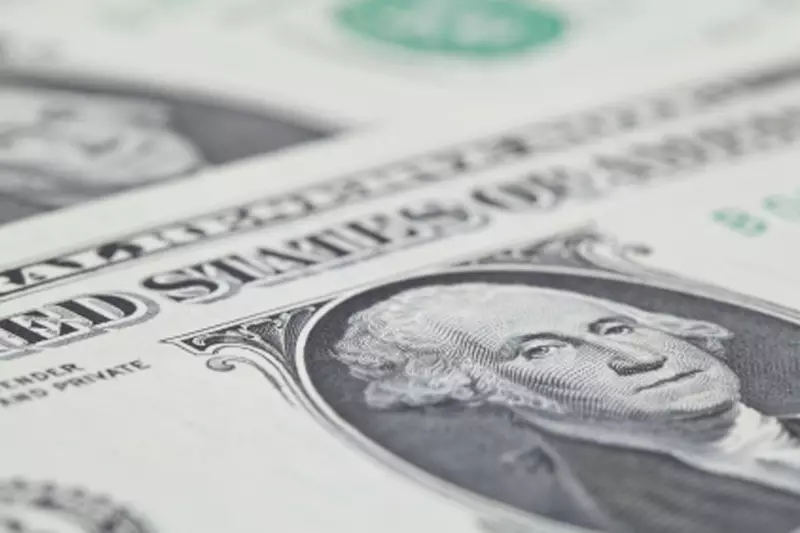The recent dynamics in the foreign exchange market reveal a complex landscape shaped by political developments and economic policy expectations. The U.S. dollar has experienced notable fluctuations, primarily influenced by the newly inaugurated Trump presidency and its implications for inflation and interest rates set by the Federal Reserve. Observers are keenly analyzing how shifts in sentiment and policy could impact the dollar’s performance in the near term.
As of Monday, the Dollar Index, which captures the performance of the dollar against a mix of six major currencies, saw an increase of 0.3%, reaching 105.207. This upward movement follows a robust 0.6% rise the previous week, effectively marking a four-month high for the dollar. The market response appears to stem from investor optimism regarding Trump-imposed tariffs and immigration policies. These strategies are perceived as catalysts for inflation, hinting that the Federal Reserve might adopt a more gradual approach toward rate cuts in the near future.
However, this expansion of the dollar’s value is not without its contradictions. Some analysts suggest that while the dollar has gained significantly, potential changes in tariff implementations could take time to materialize. Moreover, easing monetary policy from the Fed may lead to a more subdued dollar in the concluding months of the year due to traditional seasonal influences. As expressed by analysts at ING, they believe that a clearer political transition in the U.S., combined with increased consumer and business confidence domestically, could bolster the greenback’s strength against its international counterparts.
Across the Atlantic, the euro faced headwinds, experiencing a 0.3% decline to settle at 1.0688 against the dollar. This depreciation can be attributed to political instability in Germany, compounded by Trump’s tariff proposals. The ongoing turmoil following Chancellor Olaf Scholz’s sacking of his finance minister opens the door for potential snap elections, reflecting deep rifts within his governing coalition. Expectations of a no-confidence vote in the near future further exacerbate investor trepidation, raising questions about the euro’s stability and its capacity to rebound amid such political turbulence.
Commentators argue that with lackluster prospects for Germany’s fiscal adjustments, the European Central Bank will likely play a critical role in bolstering the eurozone’s economy. Analysts suggest that the ECB may soon reduce rates by 50 basis points, marking a significant shift in its monetary strategy to counteract ongoing economic challenges.
Meanwhile, the British pound also encountered pressure, falling 0.2% to 1.2900 against the dollar. This decline followed the Bank of England’s decision to cut interest rates by 25 basis points, marking its second reduction since 2020. Governor Andrew Bailey’s forthcoming speech at the Mansion House is anticipated to provide crucial insights into the Bank’s monetary policy strategy, particularly in light of the recent expansionary budget proposed by the Labour government.
Market watchers believe that the upbeat performance of the U.K. economy may furnish Bailey with the opportunity to recalibrate his approach, signaling less urgency in following through with rate cuts that may align closer to impending U.S. inflationary pressures stemming from Trump’s administration.
In a contrasting narrative, the Chinese yuan has demonstrated resilience against the dollar, rising 0.2% to 7.1934. Following the National People’s Congress’s announcement of an expansive debt package aimed at easing local government debt, investor reaction has been mixed. While the substantial 10 trillion yuan ($1.4 trillion) infrastructure investment signals a commitment to spur growth, uncertainty remains regarding the government’s ability to deliver more targeted fiscal measures which many investors anticipated.
Similarly, the Japanese yen appears to struggle, losing 0.8% to reach 153.83 against the greenback. The Bank of Japan’s recent deliberations revealed a division among policymakers regarding future interest rate hikes, further clouding the economic outlook for Japan amid political uncertainties as well.
The global currency market remains at a pivotal juncture, with the U.S. dollar showcasing resilience amid a backdrop of political change and economic policy recalibration. As international dynamics unfold, continuous monitoring of developments in monetary policy and geopolitical scenarios will be essential for understanding the broader implications for global trade and investment trends.

